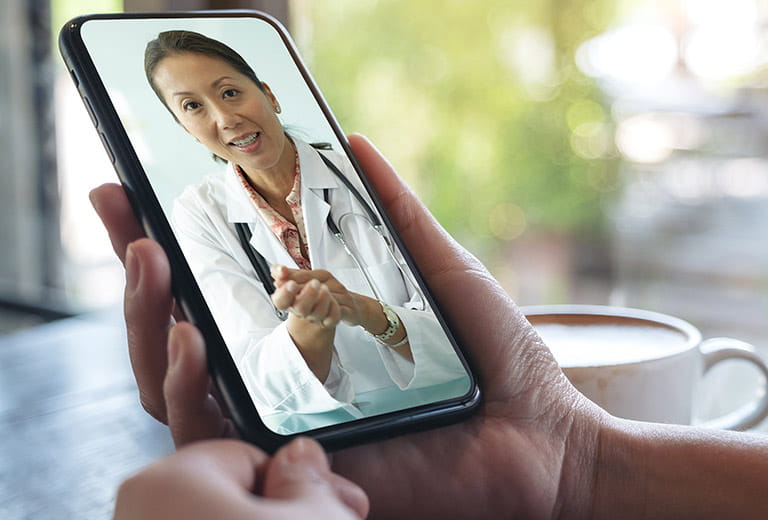We understand there are times you may need to talk to a doctor but don't want to leave home. Our virtual visit (also known as telehealth) options connect you with a doctor using your phone, tablet or computer so you can stay safe and healthy.
With these options, you can:
- Schedule a virtual visit with an Orlando Health primary care doctor or specialists, like cardiologists or oncologists, and even surgeons, for existing and new patients
- Schedule a virtual outpatient rehabilitation visit with your physical therapist
- Access on-demand virtual care for minor medical problems or COVID-19 symptoms
Virtual Visit Options
-

Virtual Care
You can see your Orlando Health Medical Group doctor or get established with a new doctor from your own home. With our new virtual visit options, scheduling an appointment is as easy as contacting your doctor's office just like you always do.
-

24/7 Virtual Care
On-demand virtual care appointments for minor medical problems are now available for new and existing patients 24/7 from the safety of your own home.
-

Orlando Health Virtual Visits for Team Members
Orlando Health team members* and their covered dependents can schedule their same-day or next-day virtual appointment with an Orlando Health Medical Group provider.
*Must be an Orlando Health Exclusive Care, Care Plus or HSA Care plan member.



